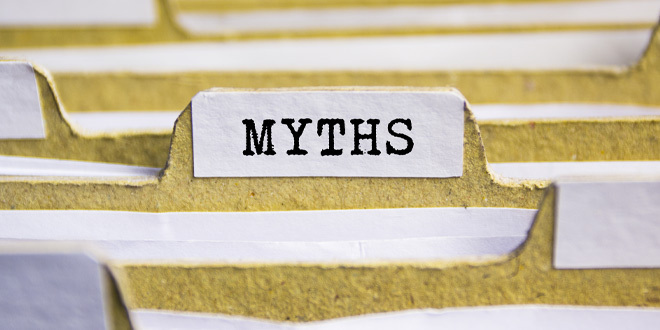
At almost every conceivable cultural touchpoint, women are seen through a straight, white, male prism. Every influential piece of media is guided by a male perspective, even famously empowering ones. This isn’t even a controversial view; we all know it. Sex & The City was adapted from the books by a man. 50 Shades is obsessed with a man. I could reel off a thousand other examples, but I don’t need to. Movie directorship and book authorship are both dominated by men. So are newspaper editors and TV producers.
This has led to a cycle of negatively reinforcing stereotypes and myths about women’s sexualities. The recreation of women’s sexualities to which we’re exposed every day is a fiction, and our presuppositions are based on traditional cultural roles that don’t reflect reality.
We’re angry about it, and we want you to be angry about it too. So here are five particularly egregious myths about women’s sexuality that need to get in the fucking bin.
5. Women Value Power
The myth goes that men and women have distinct preferences in the qualities they seek in a partner of the opposite sex. Women value the status of a partner above and beyond all else, while men, according to the same cliché, value youthfulness. Put to the test in an experimental study, these roles were proved to be untrue. In a real-life speed dating scenario, for example, women tend to rate their matches according to their actual qualities, and not to aspirational or ideal ones. The idea that women value status is simply not borne out by the evidence, which shows that women judge people based on their merits.
4. Women Think About Sex Less Than Men
A 2011 study indicated that men, or at least college age men, did indeed think about sex slightly more than women in the same study. But what wasn’t reported was that men thought about food and sleep more than women do too. What does this mean? It means that men are simply more likely than women to prioritise their immediate physical needs. It’s not that men are obsessed with sex and women aren’t, as the stereotype suggests. It’s more likely that women are more concerned with and oriented towards longer-term planning and more altruistic social behaviour.
3. Women Want Fewer Sexual Partners
The idea that women don’t like casual sex as much as men do is a common one. There is some slightly spurious evidence to indicate the truth of this. One study, on the public without their knowledge, had women approach men for sex, and then had men approach women for sex. Conventionally, something like 70% of men showed interest in sex with the stranger, and only a little more than 0% of women showed interest. But that’s not a good study. When it was conducted again on a level footing, in conditions in which the women participants might be expected to be ostracised for expressing interest, they were far more likely to be interested. In short: the deck is stacked against women with this stereotype because, unlike men, saying yes to the proposition of casual sex is likely to cause some cultural backdraft. In other words, men aren’t going to be considered sluts if they say yes to casual sex. It doesn’t mean women want it any less.
2. Women Have More Exacting Standards Than Men
This seems to be true, but only in certain circumstances. Women heighten their standards only when they are approached unsolicited. It works both ways. If a man is approached by a woman, his standards will also become more exacting. The pattern works for most groups of people.
1. Women Orgasm Less Often Than Men
Is there really an orgasm gap? Do men come more than women, on average? Apparently not, according to a raft of recent surveys. In relationships at least, women and men report roughly equal numbers of orgasms. Men and women who masturbate apparently do so at roughly equal rates, though men do report being more likely to have masturbated in the past month than women. But when they do, the volume of orgasms had evened out over time, particularly because of women’s reportedly easier multiple orgasm facility .
The post 5 Old Myths About Female Sexuality That Just Won’t Die appeared first on Volonté .
Intimate Tickles found this article quite interested, and we thought you might to. We give all the credit for this article to Stuart Nugent. Click Here To Read This Article From It's Original Source